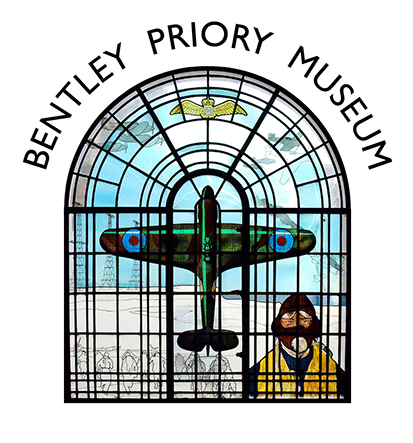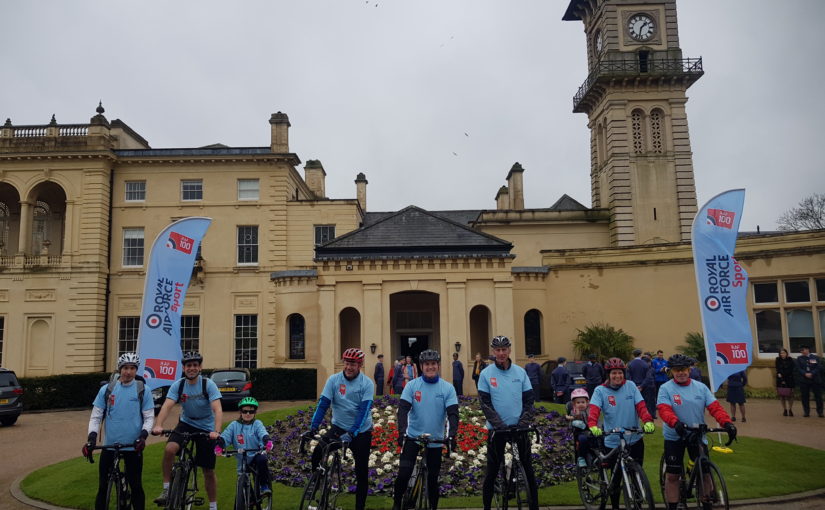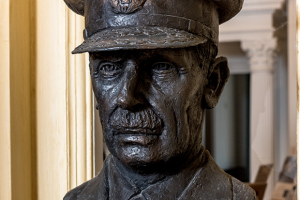The RAF 100 Baton Relay team were welcomed to Bentley Priory Museum on 2 April by the Mayor of Harrow, MP Bob Blackman and a cheering crowd of over 200 Museum visitors. Arriving by bicycle, the baton team had cycled from the RAF Museum in Hendon on the second day of their 100 day baton relay to significant RAF related sites across the country. The baton was received by Museum volunteer, John Tracey, on behalf of the team of volunteers who keep the Museum running.
Bentley Priory Museum was the baton’s only stop in Harrow, acknowledging the important role of RAF Bentley Priory, particularly during the Battle of Britain in 1940.
Museum Director, Eleanor Pulfer-Sharma: “We are proud to be able to tell some of the Royal Air Force’s important history within our Museum and were delighted to welcome the RAF 100 baton team to the Museum as part of the national celebrations of the RAF’s centenary. The RAF 100 baton’s visit to the Museum launched the Museum’s own centenary celebrations, which include a temporary exhibition on the RAF’s technical innovation & a new concert ‘Flying without Feathers’ by Tonic Choir in April & May.”
After leaving Bentley Priory Museum, the baton team visited the Battle of Britain Bunker in Uxbridge.
 What’s On
What’s On Opening Hours & Admission
Opening Hours & Admission

